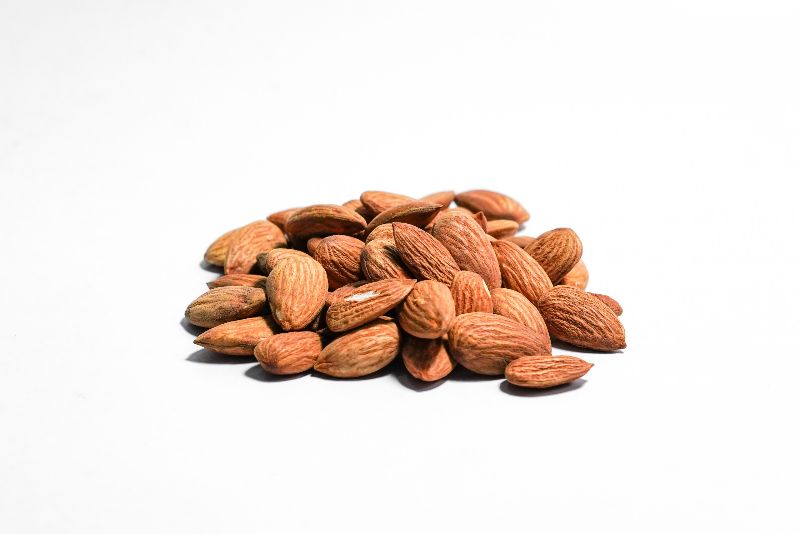Health & Fitness
Vaping Linked to Higher Asthma Risk in Adolescents: Recent Study

In today’s world, adolescents are increasingly turning to vaping. A recent study, published in the journal ‘Preventive Medicine,’ has shed light on the fact that vaping, or the use of e-cigarettes, raises the risk of asthma among adolescents who have never smoked traditional tobacco products.
While e-cigarettes contain fewer toxins than regular cigarettes, they still contain a mix of harmful chemicals that can elevate the risk of respiratory diseases.
The study has uncovered a clear connection between e-cigarette use and asthma in adolescents who have never used traditional tobacco products. This finding underscores that vaping independently increases the likelihood of asthma in adolescents, regardless of their use of conventional tobacco products.
To arrive at these conclusions, researchers analyzed data from 3,000 adolescents aged 13 to 17 in the state of Texas, comparing it with information from over 32,000 adolescents across the United States. Respondents were asked whether they had ever used an e-cigarette, the frequency of their use in the past 30 days, and whether they had received an asthma diagnosis from a healthcare professional.
The study took into account various factors, including respondent gender, age, race, ethnicity, body mass index, and the presence of depression symptoms. Additionally, it considered data on the use of other substances, such as traditional cigarettes, alcohol, and illicit drugs.
Dr. Taehyun Roh, the lead author of the study, emphasized, “Increasing awareness about the harmful consequences of e-cigarette use, enacting stricter regulations, and promoting alternative methods for managing mental health are potential measures to reduce e-cigarette use.”
The study underscores the urgency of implementing strategies to address the growing prevalence of e-cigarette use and its adverse health effects.
(With contributions from IANS)
Health & Fitness
7 Reasons Why You Should Start Your Day With Soaked Almonds.

In the quest for a healthier lifestyle, we often find ourselves exploring various morning rituals that promise to kickstart our day with vitality and vigor. One such simple yet powerful practice is incorporating soaked almonds into your morning routine. These tiny, nutrient-packed wonders have been cherished for centuries and are celebrated for their numerous health benefits. So, let’s delve into the reasons why soaking almonds and making them a part of your daily breakfast can be a game-changer for your overall well-being.
Enhanced Nutrient Absorption:
Almonds are naturally rich in nutrients like vitamin E, magnesium, and fiber. However, their brown skin contains enzyme inhibitors and phytic acid, which can impede nutrient absorption. Soaking almonds overnight neutralizes these inhibitors, making it easier for your body to absorb and utilize the essential nutrients.
Improved Digestion:
Soaking almonds not only aids in nutrient absorption but also promotes better digestion. The softened texture of soaked almonds is gentler on the digestive system, making it easier for the body to break down and assimilate the nutrients. This can be particularly beneficial for individuals with sensitive stomachs or digestive issues.
Heart Health Boost:
Almonds are a heart-healthy snack, thanks to their high content of monounsaturated fats, antioxidants, and magnesium. Soaked almonds contribute to lower levels of LDL cholesterol, reducing the risk of cardiovascular diseases. Including them in your morning routine can be a proactive step towards maintaining a healthy heart.
Brain Power Unleashed:
The vitamin E content in almonds is known to support cognitive function and protect the brain from oxidative stress. Soaked almonds, with their enhanced nutrient profile, provide a brain-boosting kickstart to your day. Regular consumption may contribute to improved memory and concentration over time.
Natural Energy Boost:
Almonds are a fantastic source of protein, healthy fats, and fiber – the perfect trio to sustain your energy levels throughout the day. Starting your morning with a handful of soaked almonds can provide a steady release of energy, helping you stay alert and focused, minus the mid-morning energy slumps.
Weight Management Ally:
Contrary to the misconception that nuts contribute to weight gain, almonds can actually be a valuable asset in your weight management journey. The combination of healthy fats, protein, and fiber in soaked almonds promotes a feeling of fullness, reducing the likelihood of overeating throughout the day.
Radiant Skin and Hair:
The vitamin E and antioxidants in almonds contribute to healthier skin by combating free radicals that accelerate aging. Additionally, the presence of biotin promotes stronger, shinier hair. By making soaked almonds a part of your daily routine, you’re investing in a natural beauty regimen from the inside out.
Incorporating soaked almonds into your morning routine is a small yet powerful step towards a healthier and more vibrant life. From improved nutrient absorption to enhanced digestion, heart health, and cognitive function, the benefits are manifold. So, the next time you’re pondering over ways to elevate your morning ritual, consider reaching for a handful of soaked almonds – your body and mind will thank you for it!
Health & Fitness
Got Hit by Conjunctivitis? No Worries! Here’s How to Treat and Prevent it.

Image Credits: istockphoto.com
Conjunctivitis has recently affected a significant number of people in Delhi. We’ll walk you through some simple and friendly steps to prevent conjunctivitis and offer practical tips on how to take care of yourself if you happen to catch it. So, let’s get started and keep those eyes happy and healthy!
Part 1: Preventing Conjunctivitis
- Keep It Clean:
First and foremost, good hygiene plays a crucial role in preventing the spread of conjunctivitis. Wash your hands regularly with soap and water, especially before touching your eyes. Avoid rubbing or touching your eyes unnecessarily, as this can introduce harmful germs into the eye area.
- Avoid Sharing Personal Items:
Sharing is caring, but not when it comes to personal items like towels, handkerchiefs, or eye makeup. Conjunctivitis is highly contagious, so be cautious and refrain from sharing these items with family or friends to reduce the risk of transmission.
- Stay Away from Infected Individuals:
If you notice someone with symptoms of conjunctivitis, such as redness, itchiness, or discharge from their eyes, be kind and keep a safe distance. Avoid close contact until their symptoms have fully resolved to prevent catching the infection.
- Protect Your Eyes:
In dusty or polluted environments, wear sunglasses or protective eyewear to shield your eyes from irritants. This can reduce the chances of conjunctivitis caused by airborne particles or pollutants.
Part 2: Taking Care of Infected
- Consult an Eye Specialist:
If you suspect you have conjunctivitis or experience symptoms like redness, itching, or excessive tearing, consult an eye specialist immediately. They can diagnose the infection correctly and suggest the appropriate treatment.
- Avoid Touching and Rubbing:
Resist the urge to touch or rub your eyes, as this can worsen the infection and spread it to your other eye or to other people.
- Keep It Clean and Soothing:
Gently clean your eyes with a clean, damp cloth to remove any discharge. You can also use over-the-counter saline eye drops to help soothe irritation and keep your eyes moisturized.
- Follow Doctor’s Instructions:
If prescribed eye drops or ointments, follow your doctor’s instructions carefully. Finish the full course of medication even if your symptoms improve, as this ensures complete recovery and prevents the infection from coming back.
- Rest and Self-Care:
Give your eyes some rest during the infection period. Avoid wearing contact lenses until your eyes are fully healed. Get adequate sleep and maintain a balanced diet to support your body’s natural healing process.
With these simple tips, you can significantly reduce the risk of conjunctivitis and protect your eyes from infections. Remember to prioritize hygiene, avoid sharing personal items, and protect your eyes in polluted environments. If you do get infected, don’t panic; just consult an eye specialist and follow their guidance.
Let’s work together to keep the eyes healthy and happy! Stay safe and take care! 🙂
Health & Fitness
Life expectancy in India drops by 2 years due to Covid pandemic: Report

A statistical analysis conducted by Mumbai’s International Institute for Population Studies shows that life expectancy in India has dropped by roughly two years due to Covid-19 pandemic.
According to IIPS assistant professor Surayakant Yadav, the life expectancy at birth for men and women has declined from 69.5 years and 72 years in 2019 to 67.5 years and 69.8 respectively in 2020, reports Times of India.
‘Life expectancy at birth’ is defined as the average number of years that a newborn is expected to live if the mortality pattern during their birth remains constant in the future.
The study was conducted to analyse the effect of the Covid pandemic on the mortality patterns across the country, as thousands of lives were lost due to the deadly pandemic waves.
The study also found out that the Covid toll was reported to be the highest for men in the age group of 35-69. The excess deaths in this age bracket due to Covid led to a sharp drop in life expectancy.
The IIPS based its study on the data collected by the 145-nation Global Burden of Disease study and the Covid-India Application Programme Interface (API) portal.
Yadav further added, “The Covid impact has wiped out the progress we made in the last decade to increase the life expectancy figure. India’s life expectancy at birth now is the same as it was in 2010. It will take us years to catch up.”
However, IIPS director Dr K S James added that epidemics in the past in countries, including Africa, massively impacted life expectancy, but it recouped in a few years.
Source : IndiaToday





































